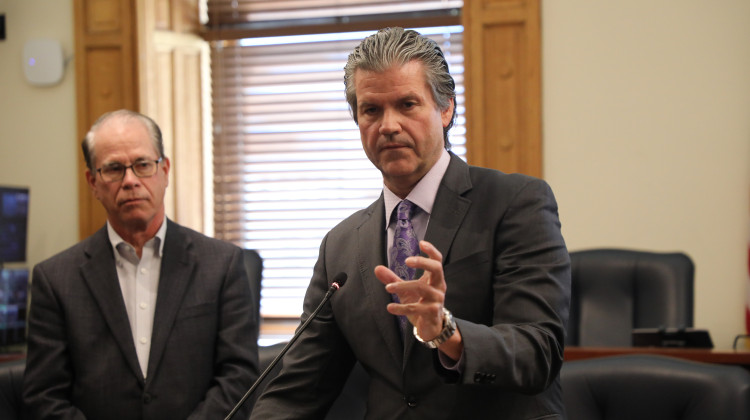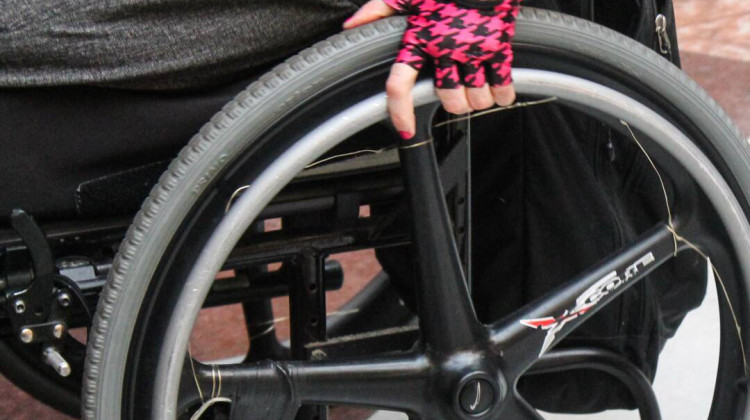Nick Evans
Many bars and restaurants in the Midwest face an unprecedented crisis, after being ordered by some states to close due to coronavirus fears. The shutdowns came as bars were preparing for big crowds on St. Patrick's Day. And that was a shock in Columbus, Ohio, where Ohio State University has some 60,000 students.
At the South Village Grill, manager Drew DeBoard struggled to decide whether to call Sunday night’s reservations. She seemed a bit shocked that her restaurant was closing.
"On a scale of one to 10, a 10,” DeBoard said. “Nothing like this has ever happened in my lifetime. We don’t—we live in a world where these types of emergencies aren’t real.
“This is the stuff you see in movies. It’s pretty crazy. I have goose bumps just saying it out loud,” she said with a laugh.
Ohio Gov. Mike DeWine insists that drastic action is necessary to stop the spread of the new coronavirus and the disease it causes, COVID-19. In recent days, he and some other Midwest governors have ordered all bars and dine-in restaurants to close.
Restaurants can stay open if they have a carry out or delivery option.
Explaining the decision, DeWine hearkened back to the differing responses of St. Louis and Philadelphia during the 1918 influenza outbreak. St. Louis took drastic to action to close down public events.
Philadelphia held a parade. When it was all said and done, the death rate in Philadephia was double the rate in St. Louis.
DeWine acknowledged these steps are going to be hard for restaurant and bar workers.
“Look, this is brutally tough, and my heart goes out to them,” DeWine said. “But we have to do what we have to do to save their lives, and not just their lives but the lives of others. And our goal is for us to get through this.”

Lisa Dublin (Photo: Nick Evans/WOSU)
According to the Ohio Restaurant Association, the industry employed more than 500,000 people last year—10% of the state’s workforce.
In a statement, association president John Barker said “it’s important we’re all in this together so restaurants are here now and after the crisis.”
The Ohio Chamber of Commerce applauded the governor as well, saying decisive action now will allow the state to return to normal sooner.
But Lisa Dublin, a bartender at High Beck Tavern, was frustrated and angry.
“I’m rarely speechless, but today would be one of the first times that I am speechless,” she said. “The whole thing seems a bit extreme, to be honest.”
And without a clear idea of how long this will last, Dublin says her concerns just pile up on top of one another.
“How to pay rent, how to feed myself, how to do all of those things,” Dublin said. "I’m a career bartender. I’m a cash girl, I don’t have a 401(k), and all kinds of back up that people who do normal jobs have.”
Up the street, Luke and Annie Pierce felt like the rug was being pulled out from under them. The couple opened their bar Lawbird just four months ago.
“We’re torn, right?” Luke says. “We’re small business owners that our livelihood just got stripped out of our hands, but again, to slow the spread of this thing, no one knows what it could be.”
Annie said at least a decision means they’re no longer in limbo. Still, she said it’s hard to prepare when there’s so much they don’t know.
“We have ideas and programs that we’ve already started to put into place to cover a few weeks’ worth of missing work or lost product, or things like that,” she explained.
“It’s the question of, what if, God forbid, this is six weeks? I have no answer or idea for that.”
At the press conference announcing Sunday’s order, DeWine’s administration promised to make it easier for people who find themselves out of work to make unemployment claims quickly. The state will also look to the federal government to make low interest loans available to companies around the state impacted by the order.
This story was produced by Side Effects Public Media, a news collaborative covering public health.
 DONATE
DONATE









 Support WFYI. We can't do it without you.
Support WFYI. We can't do it without you.